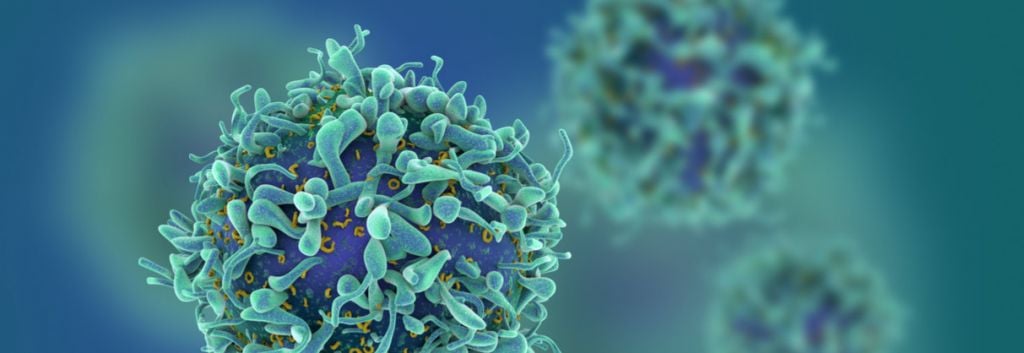Newsletter Signup - Under Article / In Page
"*" indicates required fields
Novartis’ Kymriah, the first approved CAR-T therapy worldwide, has performed far below sales expectations in the last quarter. The news highlights the challenges CAR-T therapies still face before becoming a commercially viable treatment option.
CAR-T therapy has shown impressive results treating the cancer of patients for which all other treatments fail. One would expect this would translate into huge revenues for CAR-T makers, but the first CAR-T, Novartis’ Kymriah, is not starting off on the right foot. In the first quarter of 2018, the treatment brought in $12M (€10M), roughly four times below the sales needed to meet analyst expectations, which are at $159M (€130M) for the year 2018.
The news comes right after a Goldman Sachs analyst asked in a report whether curing patients is a sustainable business model. Though met with big criticism, the question reflects one of the biggest challenges for cell and gene therapies: pricing.
The first gene therapy, uniQure’s Glybera, was effective at curing a rare disease known as lipoprotein lipase deficiency. But its €1 million price tag meant that the treatment ended up being used only once before it was withdrawn from the market.
Although Kymriah does not target a condition as rare as Glybera did, its target population is quite small. Kymriah is approved to treat children and young adults with acute lymphoblastic leukemia, a rare cancer that affects only 3,100 new patients each year. Kymriah targets roughly 30% of these patients — only several hundred per year — who do not respond to standard therapy. In addition, Novartis‘ treatment can only be given at 32 sites in the US, making it difficult to reach all the patients in need.
These challenges are reflected in the final price of the therapy — a whopping $475,000 (€400,000) per patient. Although Novartis offers a payment scheme that only charges those patients that respond within the first month, its price is significantly higher than that of the only other CAR-T therapy approved: Gilead’s Yescarta, which “only” costs $373,000 (€316,000).
However, Novartis still has a chance to recover and turn Kymriah in the $1Bn blockbuster that analysts have predicted. Kymriah is currently waiting for FDA approval to extend the use of Kymriah to diffuse large B cell lymphoma in the US, as well as taking the therapy to Europe.
But where Novartis is struggling to meet pricing and sales expectations, newcomers might bring solutions. One of the most popular approaches under development is allogeneic CAR-T cells — that is, produced from donor T cells instead of being manufactured individually with each patient’s T cells. The French Cellectis is conducting the first clinical trial with these off-the-shelf cells that could make the manufacturing of CAR-T much faster and cheaper.
Other companies are working on making CAR-T work in larger cancer populations. For example, the Belgian Celyad recently reported the first CAR-T success in acute myeloid leukemia (AML) and many others are putting their efforts into making CAR-T effective in solid tumors. Hopefully, as technology develops, this revolutionary therapy will be profitable to big pharma while becoming affordable and accessible to more and more people in need.
Images by fusebulb, Meletios Verras/Shutterstock
Oncology R&D trends and breakthrough innovations







